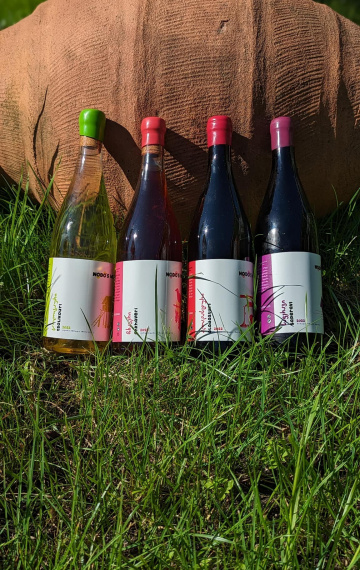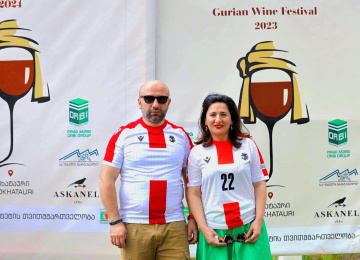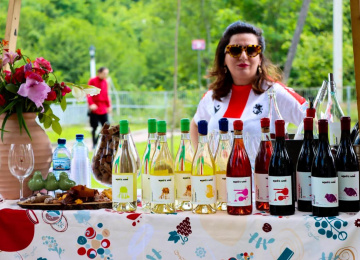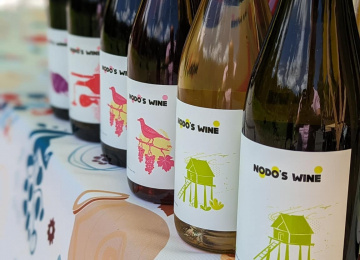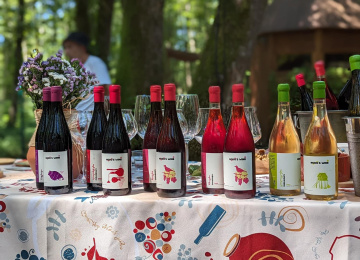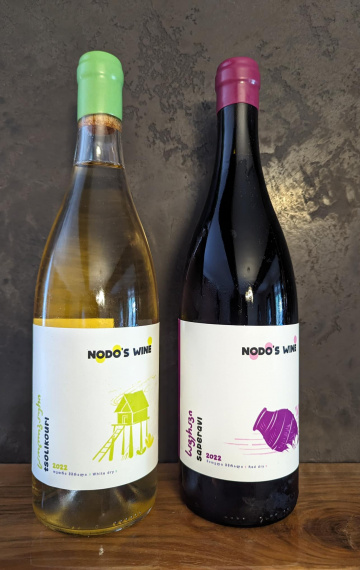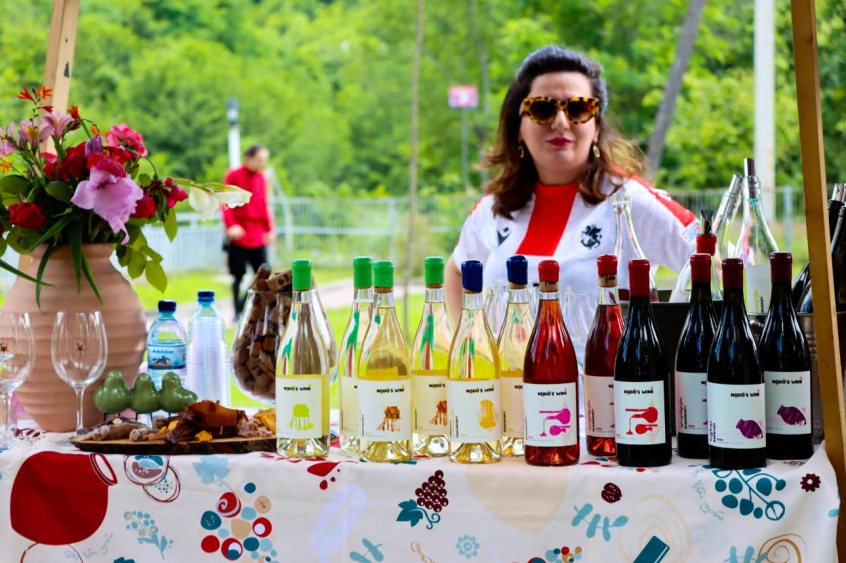
In 1820, during his travels in Georgia, a French traveller, Jacques Francois Gamba, described tasting an exceptional wine made from a grape that didn’t turn red when ripe — what is now known as Chkhaveri, a native variety from the Guria region in western Georgia.
For decades, many local winemakers have crafted wine from Chkhaveri, including Nodar Chkhartishvili, who began winemaking more than 50 years ago and was driven by deep passion. His love for winemaking became a cherished legacy, passed down through generations, especially to his grandson, also named Nodar, who now tends the very vine his grandfather once planted. Today, “Nodo’s Wine” has already earned acclaim at international wine expos.
When Nodar Chkhartishvili and his wife, Tatia Gogiberidze, began their winemaking journey about seven years ago, their goal was simple: to make wine just for the family. But after showcasing their bottles at local festivals — and seeing how much people loved them — they realized they had something special.
“We built only one winery and naively thought it would be enough,” Gogiberidze recalls. But as their passion deepened, so did the demand. What began as a modest family project soon blossomed into a thriving business. Their winery quickly became a favorite stop for tourists visiting the region.
But meeting export standards required strict quality control — something that wasn’t easy at first. Producing European-style wine proved especially challenging for the family, as it demanded precise temperature regulation during fermentation. With limited resources, they tried to maintain conditions using a basic air conditioner, but it simply wasn’t enough.
Through the EU-funded project “GREEN Guria – Supporting Local Democracy and Rural Development for Inclusive and Resilient Green Growth” (under the European Union’s ENPARD IV Programme), the family received the support they needed. Implemented by CENN in partnership with the Young Pedagogues’ Union, the Institute of Democracy, and the Local Action Group of KEDA, the project helps improve economic and social conditions in rural Guria. It promotes green, inclusive growth and empowers local communities — especially women, youth, and vulnerable groups — to participate in building a climate-resilient future.
Now the winery is equipped with a fermentation tank fitted with a cooling jacket. This system allows them to maintain a consistent temperature of 18°C during fermentation, significantly reducing the risks associated with manual temperature control and ensuring greater consistency and quality in the final product. The winery also constructed a cellar that meets European standards — not only in terms of hygiene, with proper washing and drying procedures, but also in terms of the technological requirements essential for high-quality winemaking.
“We used to make 2,000 bottles a year — now it’s 4,000,” says Gogiberidze. Their wine is sold locally in Georgia, including in restaurants and the famous store chain “8,000 vintages”.

